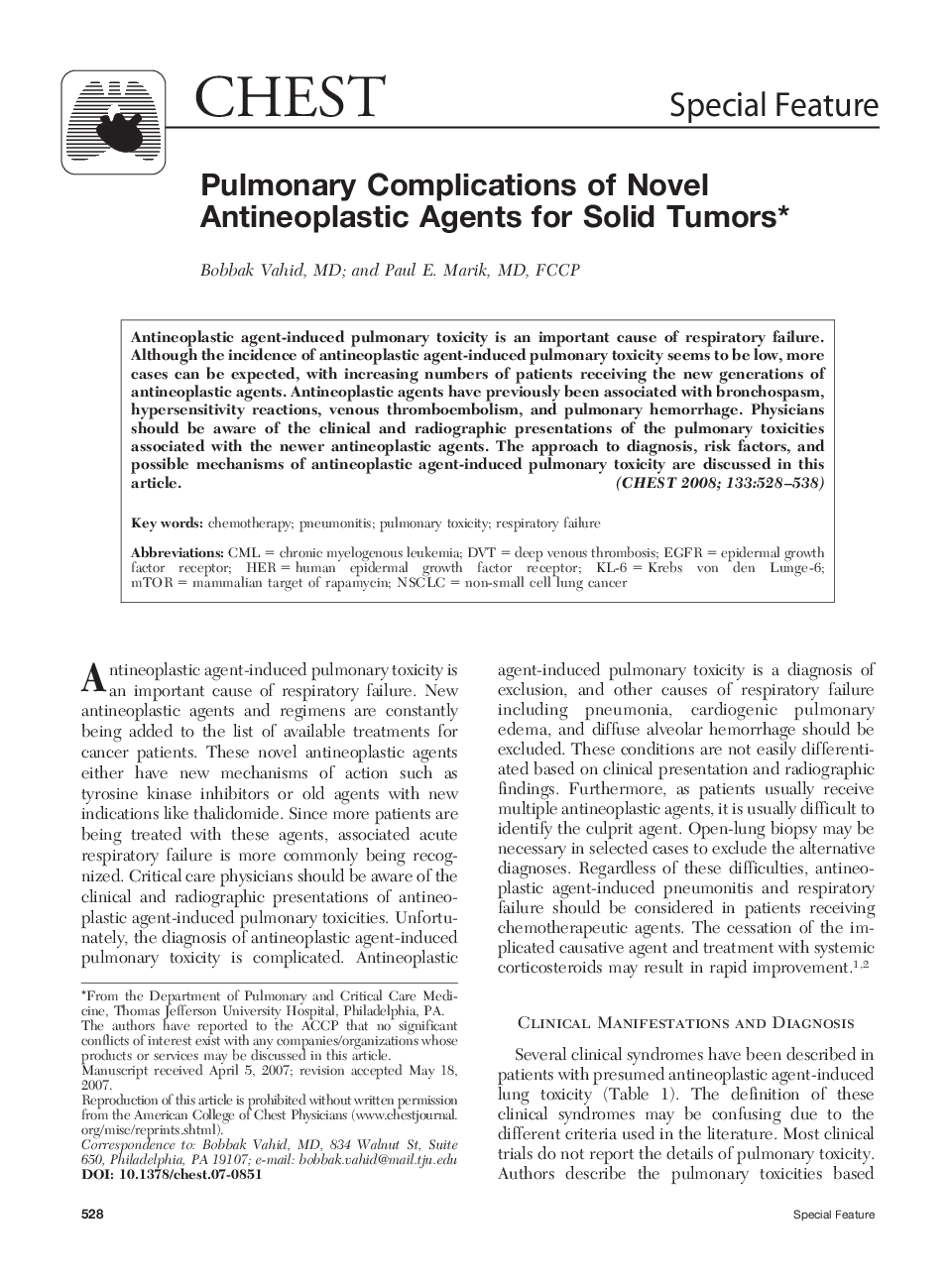| Article ID | Journal | Published Year | Pages | File Type |
|---|---|---|---|---|
| 2904222 | Chest | 2008 | 11 Pages |
Antineoplastic agent-induced pulmonary toxicity is an important cause of respiratory failure. Although the incidence of antineoplastic agent-induced pulmonary toxicity seems to be low, more cases can be expected, with increasing numbers of patients receiving the new generations of antineoplastic agents. Antineoplastic agents have previously been associated with bronchospasm, hypersensitivity reactions, venous thromboembolism, and pulmonary hemorrhage. Physicians should be aware of the clinical and radiographic presentations of the pulmonary toxicities associated with the newer antineoplastic agents. The approach to diagnosis, risk factors, and possible mechanisms of antineoplastic agent-induced pulmonary toxicity are discussed in this article.
